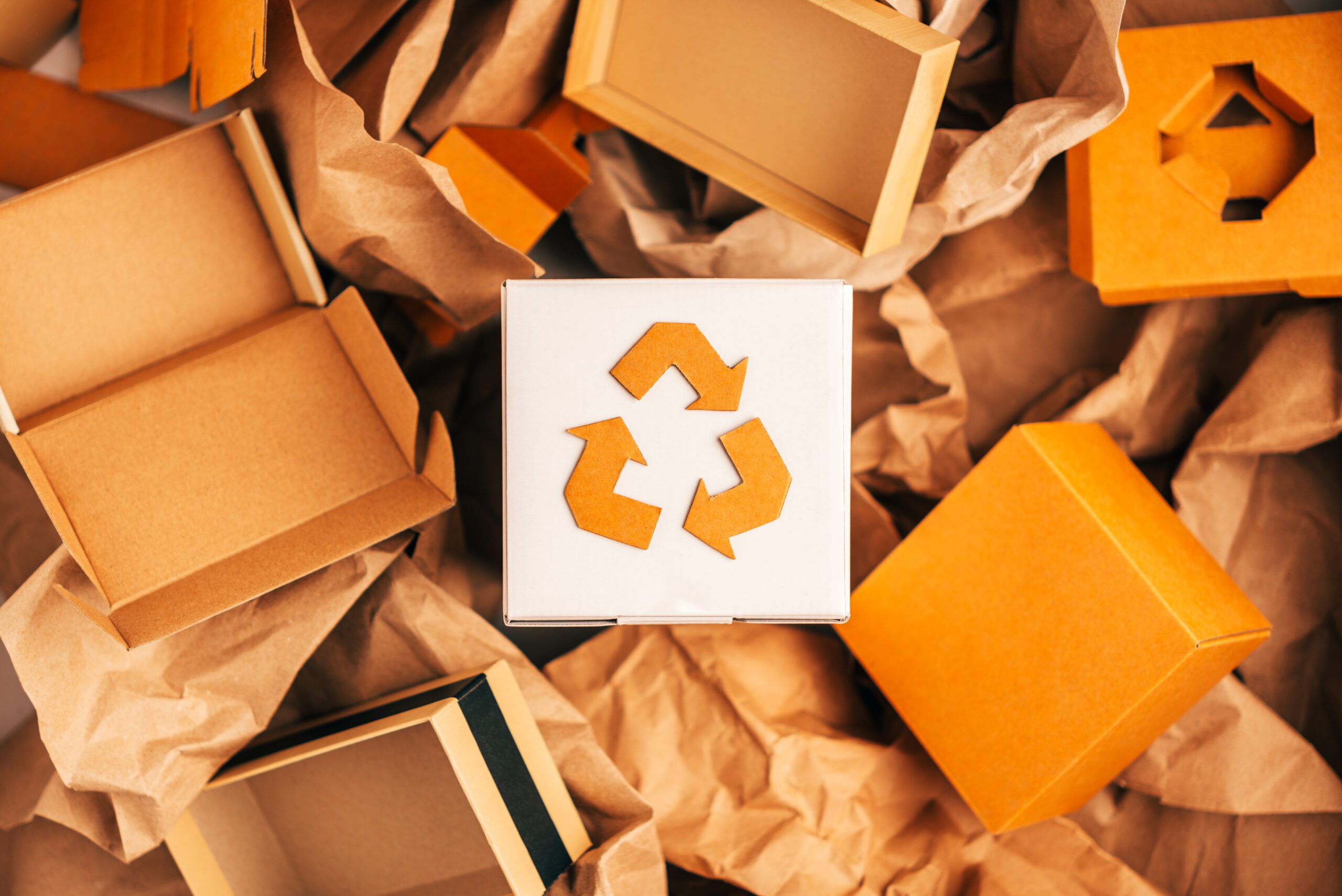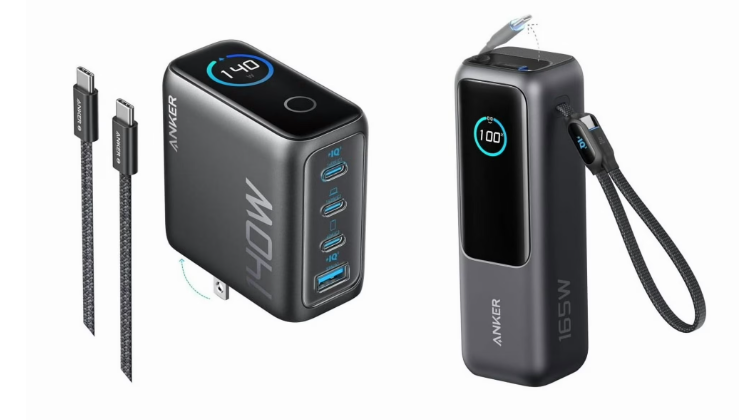UPDATE: The date for Extended Producer Responsibility is coming up for larger firms, but it might be time for you to get preparations in place as a small business, too.
Big businesses will be financially responsible for recycling their packaging from October 1, 2025. As a small business, you may well have registration and reporting responsibilities, too – read on to find out more.
What is Extended Producer Responsibility?
Extended Producer Responsibility (EPR) is UK legislation that will replace current packaging waste regulations with a phased implementation. The plan is for full implementation by 2027.
It is an environmental policy that requires producers to pay the full costs of dealing with the waste they produce from when it is placed onto the market, through to the end of its life.
The idea behind Extended Producer Responsibility is to reduce the environmental impact of packaging. Under EPR proposals, packaging producers will be responsible for the entire cost of recycling packaging, including the cost of collection, treatment, and recycling.
Research has shown that implementing Extended Producer Responsibility increased the percentage of paper and packaging being recycled to over 75 per cent in seven jurisdictions, including Belgium, Spain and the Netherlands.
Plastic Packaging Tax – what does it mean for my small business? – From April 2022, businesses will be liable to pay Plastic Packaging Tax.
We explore what it is and whether it will affect you
Does Extended Producer Responsibility affect my business?
Most microbusinesses and SMEs will not be affected by Extended Producer Responsibility for packaging.
However, if your business’s annual turnover is between £1m and £2m and you are responsible for handling and supplying 25-50 tonnes of empty packaging or packaged items throughout the calendar year, then yes, you will be affected. If you’re above these thresholds then you’re deemed a large producer and will have to follow different rules.
You’ll also need to register and pay an annual £1,216 (£631 if you go with a compliance scheme, who will also register on your behalf) as well as keeping up with your reporting responsibilites.
Rather than being classed by turnover or how many people you employ, ‘small producers’ are defined differently here. Generally speaking, you’ll be a business or organisation that supplies packaging. You can check if you need to report packaging data using this Government checker here.
What counts as packaging activity?
You may need to act if you do any of the following:
- supply packaged goods to the UK market under your own brand
- place goods into packaging that’s unbranded when it’s supplied
- import products in packaging
- own an online marketplace
- hire or loan out reusable packaging
- supply empty packaging
How does your business boost sales with sustainable packaging? – Here, we discuss the benefits of moving to sustainable packaging, and outline some practical ways for you to embrace the green revolution.
What do I need to do if my small business qualifies for Extended Producer Responsibility?
- Make sure you record data about all the empty packaging and packaging items you handle and supply through the UK market
- Register for the EPR for packaging online service
- Submit your data about the empty packaging and packaged products you handled or supplied through the UK market.
Data must be reported by 1 April for the previous calendar year
What should data submission include?
If affected, your business should start preparing now to capture your packaging data. The data submission must include the weight of:
- Individual materials in the packaging you handle and supply
- Materials used in your primary, secondary, and transit packaging
- Packaging that is likely to become household or non-household waste
- Packaging that could end up in street bins
Any missed payments will result in a penalty charge.
What you may need to do next
- Collect and report data on the packaging you supply or import
- Pay a waste management fee
- Pay scheme administrator costs
- Pay a charge to the environmental regulator
- Get packaging waste recycling notes (PRNs) or packaging waste export recycling notes (PERNs) to meet your recycling obligations
- Report information about which nation in the UK packaging is supplied in and which nation in the UK packaging is discarded in – this is called ‘nation data’
A PRN (packaging waste recycling note) or PERN (packaging waste export recycling note) is evidence that packaging waste has been recycled.
You can get PRNs from accredited re-processors. Re-processors are responsible for recycling packaging waste. You can also get PERNs from accredited exporters.
By getting PRNs and PERNs, you work towards meeting your recycling obligations.
Joe Phelan, money.co.uk business credit cards expert, said: “As the deadline for larger firms approaches, now is the ideal time for SMEs to get organised for their own deadline in April.
Proactive planning will help ensure these new costs are managed smoothly within their financial forecasts.”
To help firms stay compliant and manage the new financial burden, Phelan provides four key tips:
Prepare your reporting data now
“Make sure you have organised data-collection processes in place as soon as possible. Get a head start by looking over the reporting templates on the government website so you know what to expect and have everything you need to hand when the time comes.
Audit your packaging to save money
“Conducting a packaging audit helps with accurate reporting and allows you to plan for future cost savings. This is crucial because from 2027, the fees your business pays will be directly linked to how easy your packaging is to recycle. Choosing materials that are harder to recycle, like black plastic, will mean you pay a higher rate, so identifying these materials now can lead to significant savings later on.
Consider a compliance scheme
“Businesses with enough budget could partner with a government-approved compliance scheme for support.
They can handle tasks like registering with the environmental regulator and reporting your data, though you will still need to cover the fees yourself.
Plan for unexpected costs
“If you don’t have enough saved for the registration fee, it’s worth exploring what responsible lending options are available to you as a short-term solution. A business credit card, for example, can provide financial flexibility to cover any unexpected costs or late fees if you experience a hiccup during your submission.”
How do I report?
You report packaging data using the Report Packaging Data Service, of course! Though the name may change to reflect when it becomes a more general EPR for packaging account.
Only certain members of your business can create an account.
- The director or company secretary
- A partner
- A member of a limited liability partnership
Sole traders are fine to create their own accounts.
Follow this link to create an account on the report packaging data service.
More people can be invited to manage data once your account is set up and they will have legal responsibilities.
What could happen next?
The European Commission has proposed extending EPR for textiles from 2025 to address the industry’s exceptionally low recycling rates.
Further reading
What is a royal warrant? – A royal warrant is seen as being a stamp of approval from the King himself. But they’re not just for luxury products, they can be for roofing and even a can of baked beans.
What is a royal warrant and how do you get one?
Disclaimer: This story is auto-aggregated by a computer program and has not been created or edited by finopulse.
Publisher: Source link







